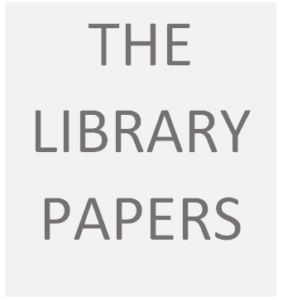Procedural Knowldege
Traditionally, procedural knowledge was not within the bounds of what libraries offered—they restricted themselves to the ‘higher’ forms of knowledge to be found in the form of declarative knowledge. True, librarians could offer instructional information about a topic, but not instruction in how to actually apply the information—for instance books on hockey rules, skills, history etc. but not actual hands-on instruction. And for the most part this is still the case—coaches, trainers, artists, actors are still the best sources for tacit and procedural knowledge about most specialized skills. But because of the blurring boundaries between production and consumption of communications, this is no longer true for digital media.
And this is true not just for learning how to use a variety of software to communicate in multiple modes, but as digital media are becoming increasingly vital to all kinds of knowledge, procedural knowledge about computer programming is also coming to be seen as an integral component of literacy, which has led to the movement for so-called makerspaces in libraries.
One of the leading advocates for this additional kind of knowledge about production was Seymour Papert, whose theory of Constructionism (as distinct from the more widely used pedagogical philosophy known as ‘constructivism’) gave the following rationale for including production in pedagogical practices:
“Constructionism . . . shares constructivism’s connotation of learning as “building knowledge structures” irrespective of the circumstances of the learning. It then adds the idea that this happens especially felicitously in a context where the learner is consciously engaged in constructing a public entity, whether it’s a sand castle on the beach or a theory of the universe.” http://www.papert.org/articles/SituatingConstructionism.html
And elsewhere in this paper he describes it as “A preference for working with concrete materials rather than abstract propositions.”
Following from this, others have suggested that procedural knowledge acquired in this way can lead to genuine learning without the need for teachers or schools. For example Sugata Mitra has argued this is two TedTalks: https://www.ted.com/talks/sugata_mitra_build_a_school_in_the_cloud
However, despite these claims, educators do have a role to play in the use of these media, since not everyone has access to the tools or the skills to be able to produce material, nor even the desire to do so. But even if not everyone will want to produce their own material, they will inescapably be consumers of this material, and to the greatest extent possible, they should be educated consumers.
Resources
- http://www2.gov.bc.ca/gov/content/education-training/k-12/teach/teaching-tools/digital-literacy
- http://mediasmarts.ca/digital-media-literacy
- Loertscher, D. V. (2014). Makers, self-directed learners, and the library learning commons. Teacher Librarian, 41(5), 35-35,38,71.
- Canadian Library Association. (2014). Leading learning: Standards of practice for school library learning commons in Canada.






